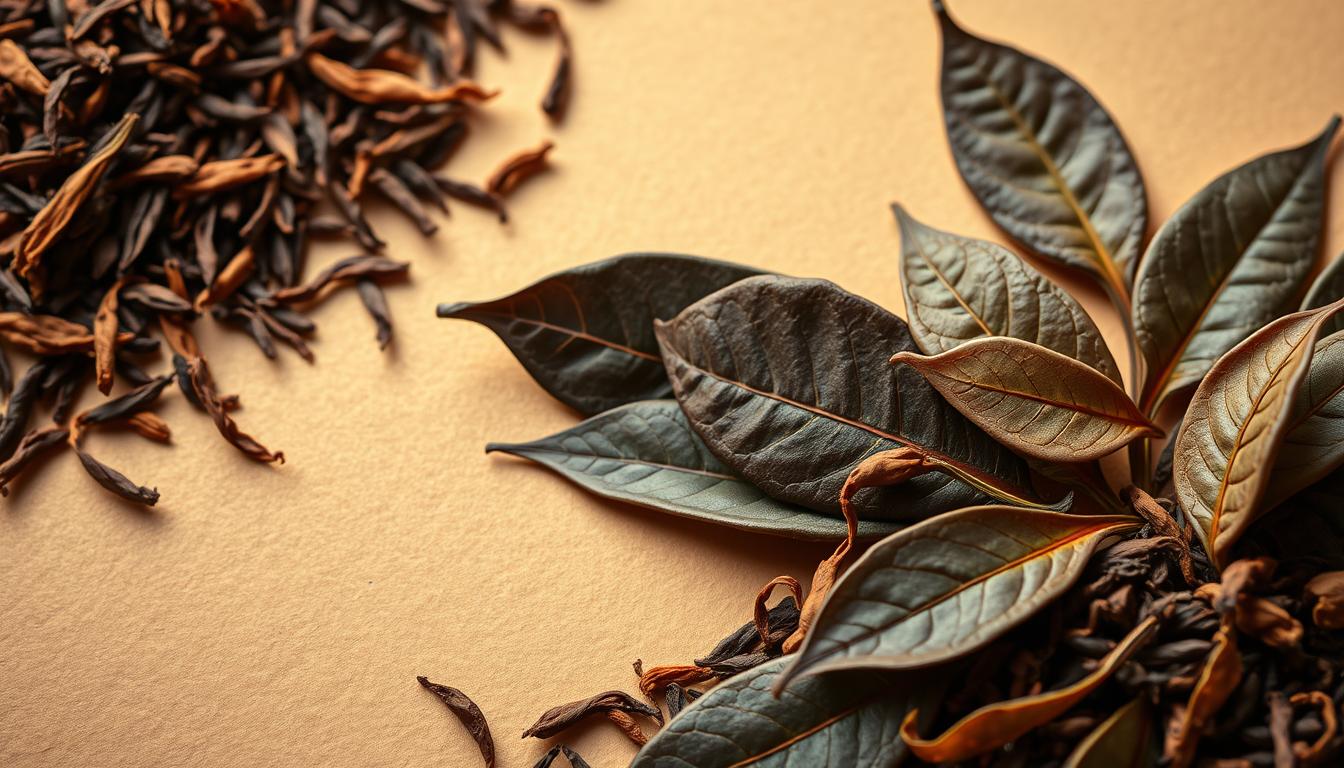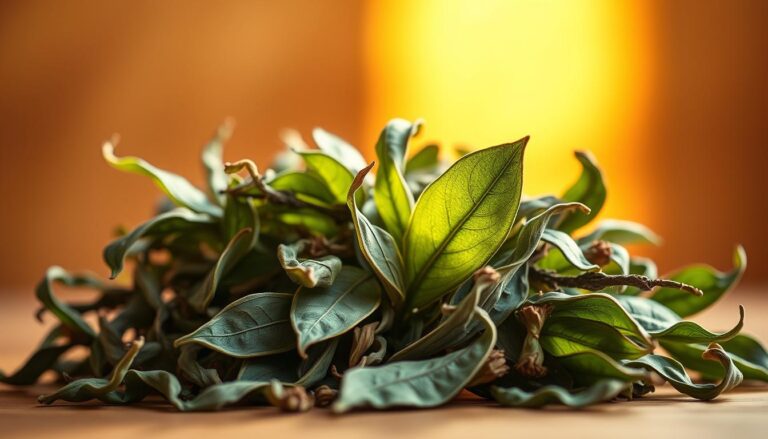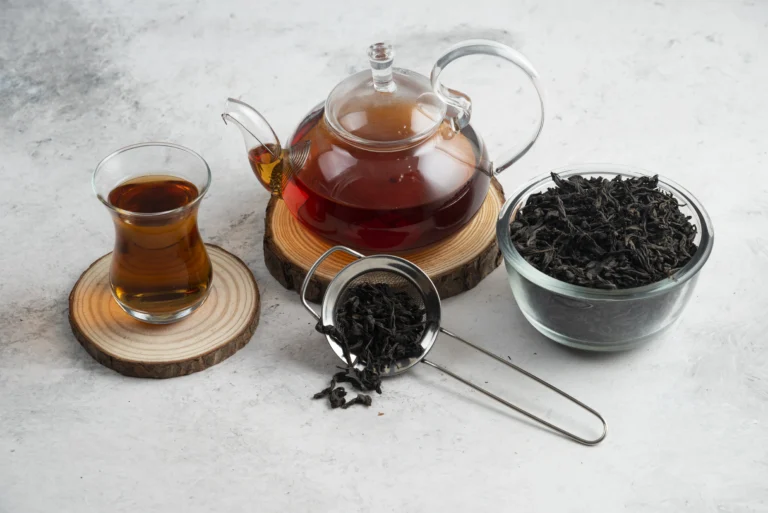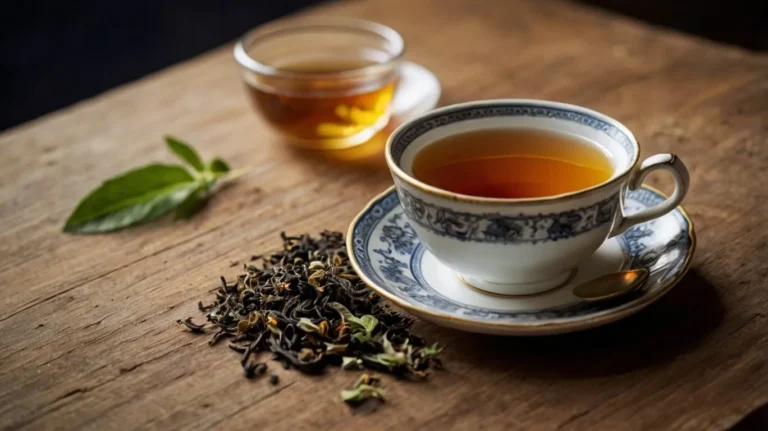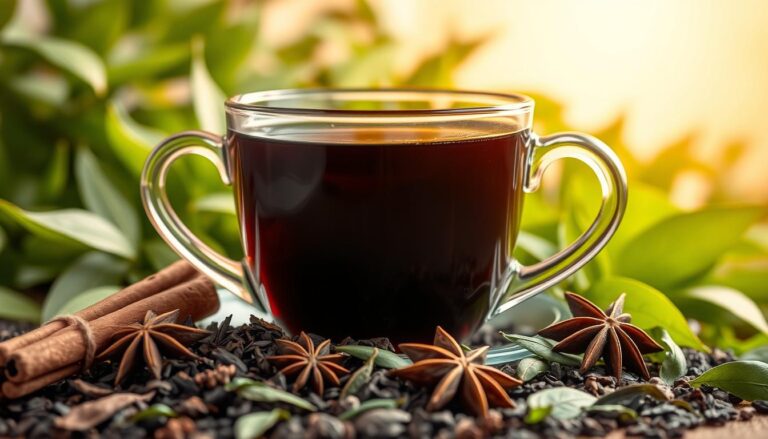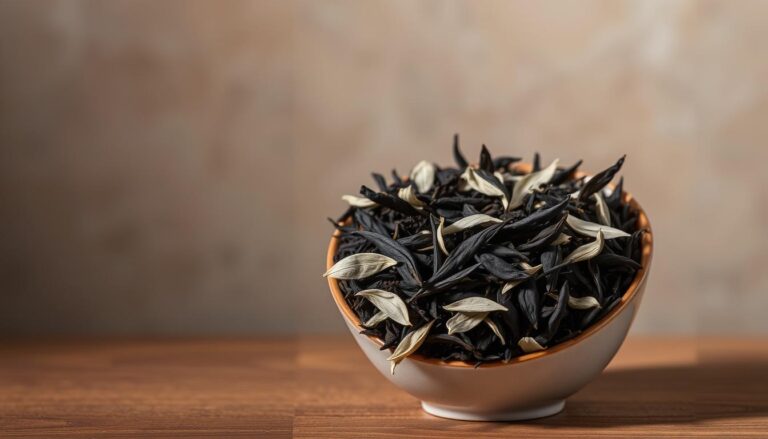Assam Black Tea: 7 Benefits and How to Choose the Best for Your Daily Brew
Every morning, as sunlight streams through my kitchen window, I reach for my favorite Assam black tea leaves. The rich, robust aroma instantly awakens my senses. It takes me to the lush tea gardens of northeastern India. This isn’t just a beverage – it’s a connection to a centuries-old tradition of exceptional tea craftsmanship.
Assam black tea stands out as a remarkable brew that captures the essence of its extraordinary origin. Grown in the fertile Brahmaputra Valley, these distinctive tea leaves offer more than just a morning pick-me-up. They represent a complex blend of flavor, history, and wellness that tea enthusiasts around the world have come to cherish.
Whether you’re a seasoned tea drinker or just beginning to explore the world of loose leaf tea, Assam black tea promises an exceptional experience. Its deep, malty flavor and impressive health benefits make it a standout choice for those seeking both taste and nutrition in their daily cup.
Table of Contents
Key Takeaways
- Assam black tea originates from the northeastern region of India
- Offers a unique, robust flavor profile with malty undertones
- Packed with powerful antioxidants and health-promoting compounds
- Suitable for multiple brewing methods
- Supports overall wellness and provides natural energy boost
Origins and History of Assam Tea
Assam tea comes from the lush Brahmaputra Valley. It has a rich history that changes how we see this favorite drink. The story starts in 1823 when Scottish explorer Robert Bruce found the tea plant growing wild in the area.
This discovery was a big deal for tea worldwide. Tea estates quickly became key in what’s now a famous tea region. Local farmers developed special ways to make black tea, giving it a unique taste.
Discovery in Brahmaputra Valley
For years, local tribes drank tea. But it wasn’t until then that its value was seen. The Brahmaputra Valley’s perfect mix of soil, humidity, rain, and climate made it ideal for tea.
- Rich, loamy soil
- High humidity
- Abundant rainfall
- Tropical climate
Traditional Production Methods
“Tea is quiet and our thirst is gentle. The tea ceremony represents harmony between humans and nature.” – Unknown
Assam’s tea estates use special ways to make black tea. They turn fresh leaves into strong, full-bodied drinks. These methods, passed down through generations, highlight the tea’s deep, malty taste.
Cultural Significance in India
Assam tea is more than just a drink in India. It stands for culture, community, and farming innovation. Tea estates helped local communities by creating jobs and making India a big player in tea.
Understanding Assam Black Tea Varieties
Exploring Assam black tea opens up a world of flavors and farming methods. Your adventure into these unique teas starts with learning about the different types of Assam tea.
Organic tea from Assam is known for its high quality and eco-friendly farming. Choosing organic Assam black tea means you support green farming and health.
- Classic Orthodox Assam: Full-bodied with a distinctive malty flavor
- CTC (Cut, Tear, Curl) Assam: Robust and intense, perfect for milk tea
- Fair trade tea options: Ensuring ethical treatment of tea farmers
Single-origin teas from Assam estates can change how you enjoy tea. Each estate has its own flavor, shaped by the local climate and soil.
Fair trade tea helps tea farmers get fair pay and work in good conditions. Choosing these teas supports communities in Assam.
Discover the depth and complexity of Assam black tea- where every sip tells a story of tradition and craftsmanship.
Knowing about these varieties helps you pick the right Assam black tea. Whether you like a strong, malty taste or a lighter single-origin, Assam has something for you.
The Unique Growing Conditions of Assam Region
The Assam tea growing regions are special. They are located by the Brahmaputra River. Here, you find some of the world’s best black tea.
Assam’s geography is perfect for growing tea. It has a unique terroir that sets it apart from other tea regions.
- Tropical climate with high humidity
- Abundant annual rainfall (typically 2,000-3,500 mm)
- Rich, loamy soil with excellent drainage
- Temperatures ranging between 25-35°C during growing seasons
Climate and Soil Requirements
Assam’s climate is ideal for tea. The heavy monsoon rains and warm temperatures help tea plants grow strong. This results in tea leaves with deep flavors.
Seasonal Harvest Periods
Tea in Assam is harvested in specific seasons called flushes. These seasons affect the tea’s quality:
- First Flush (Spring): Delicate, light-bodied teas
- Second Flush (Summer): Rich, full-bodied teas with golden tips
- Monsoon Flush (Rainy Season): Strong, robust teas
- Autumn Flush: Mellow, smooth-flavored teas
Impact on Tea Quality
The quality of Assam black tea comes from its climate, soil, and how it’s processed. Your cup of tea shows the region’s natural richness. It offers a bold, malty taste that tea lovers everywhere enjoy.
Health Benefits of Daily Consumption
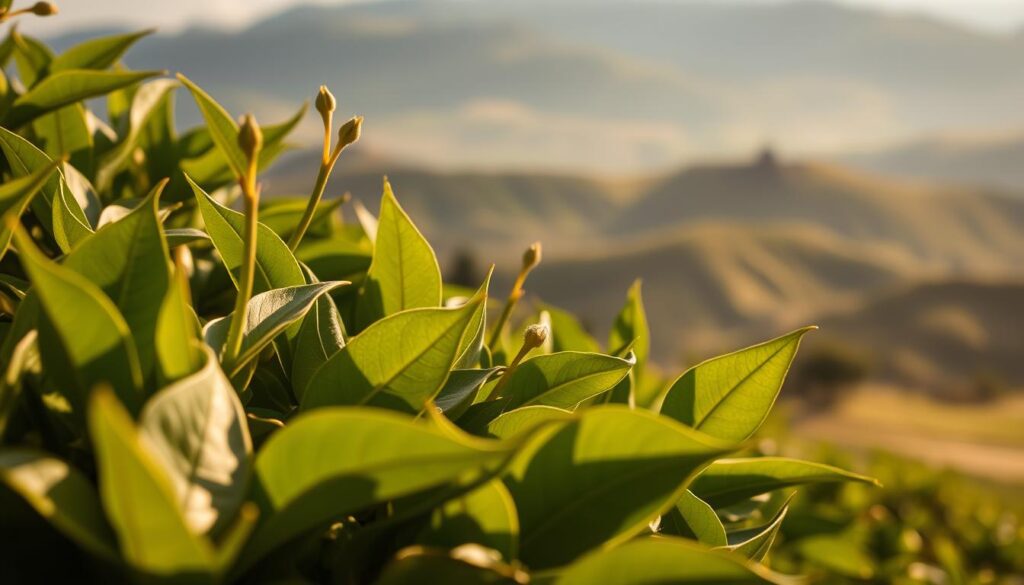

Drinking Assam black tea can change your daily routine for the better. It’s not just tasty; it’s packed with health benefits. It’s a natural source of compounds that boost your well-being.
The health perks of Assam black tea come from its antioxidants and plant compounds. These ingredients help your body fight off diseases:
- Boosts immune system function
- Supports cardiovascular health
- Enhances cognitive performance
- Reduces oxidative stress
Regularly drinking Assam black tea is good for your body. Its antioxidants fight off harmful free radicals. This can lower inflammation and keep your cells healthy. Theaflavins and thearubigins are key to these benefits.
Assam black tea is also great for your heart. Studies show it can:
- Improve blood circulation
- Manage cholesterol levels
- Support healthy blood pressure
It’s not just good for your body; it’s also good for your mind. The tea’s caffeine gives you energy without the crash. It helps you stay focused and clear-minded.
A cup of Assam black tea is more than a drink – it’s a daily investment in your health.
Essential Nutrients and Compounds
Explore the amazing world of Assam black tea’s nutrients. This drink is full of nutrients that make it taste great and good for your health. Knowing what’s in your tea can make you appreciate it even more.
Assam black tea is more than a tasty drink. It’s a source of good stuff that can help you feel better. The unique smells are just the start of its health benefits.
Antioxidant Properties
Assam black tea is a big deal for your health. It’s full of:
- Catechins that fight cellular damage
- Theaflavins supporting cardiovascular health
- Polyphenols that protect against oxidative stress
Caffeine Content Analysis
Start your day with a boost from Assam black tea’s caffeine. It gives you:
- More mental alertness
- Better focus
- Long-lasting energy
Beneficial Polyphenols
The polyphenols in Assam black tea are true health heroes. These compounds do more than create complex tea flavors – they offer substantial health-protecting mechanisms that support your body’s natural defense systems.
They help your immune system and might even reduce inflammation. Each sip is a natural dose of wellness.
Brewing the Perfect Cup of Assam Tea
Learning to brew Assam black tea is all about precision and care. Your journey to the perfect cup starts with knowing the key elements. These elements turn simple tea leaves into a remarkable drink.
Begin by choosing high-quality filtered water. This water is crucial for bringing out the full flavor of Assam tea. The water temperature and steeping time are also key to successful brewing.
- Use fresh, cold water for the best taste
- Measure approximately 1 teaspoon of tea leaves per cup
- Heat water to precisely 200°F (93°C)
- Steep for 3-5 minutes depending on desired strength
There are different brewing methods to try. Each one can change how you enjoy your Assam tea. Find the method that suits your taste best:
| Brewing Method | Steeping Time | Flavor Intensity |
|---|---|---|
| Traditional Method | 3-4 minutes | Medium |
| Strong Brew | 4-5 minutes | Bold |
| Milk Tea Style | 3 minutes | Smooth |
If you want a richer experience, try adding milk or honey. These can enhance the flavor of your Assam tea, revealing its rich taste.
Pro tip: Always warm your teapot or cup before brewing. This keeps the tea at the best temperature and preserves the delicate brewing techniques.
Selecting Premium Quality Assam Black Tea
Choosing the right Assam black tea can make your tea time better. There are many options in tea processing and from different tea estates. Knowing how to pick a high-quality tea is key for tea lovers.
Grade Classifications
Assam black tea has several grade classifications. These show the tea’s quality and taste:
- Orange Pekoe (OP): Whole leaf tea with a balanced flavor
- Golden Broken Orange Pekoe (GBOP): Broken leaves with golden tips
- Tippy Golden Flowery Orange Pekoe (TGFOP): Premium grade with numerous golden tips
- Finest Tippy Golden Flowery Orange Pekoe (FTGFOP): Top-tier tea with exceptional quality
Certification Standards
When picking Assam black tea, look for certifications. They prove the tea’s quality and if it was made ethically:
- Organic certification
- Fair Trade verified
- Rainforest Alliance approved
- Single-origin Estate certification
Storage Requirements
Keeping your tea fresh and flavorful is important. Store your Assam black tea in an airtight container. Keep it away from light, moisture, and strong smells. The best place is a cool, dark pantry with:
- Sealed opaque container
- Temperature between 60-75°F
- Away from spices and coffee
“The quality of your tea begins with careful selection and continues with proper preservation.” – Tea Master’s Wisdom
By knowing about grades, certifications, and storage, you can pick and enjoy top-notch Assam black tea. This comes from the best tea estates.
Comparing Assam Tea with Other Black Teas


Assam tea is a standout among black teas. It has its own unique taste and brewing style. This makes it different from other black teas.
Let’s compare Assam tea with other popular black teas:
| Tea Variety | Origin | Flavor Profile | Brewing Characteristics |
|---|---|---|---|
| Assam Tea | Brahmaputra Valley, India | Bold, malty, full-bodied | Strong, robust brew |
| Darjeeling Tea | West Bengal, India | Light, floral, muscatel | Delicate, complex |
| Ceylon Tea | Sri Lanka | Bright, citrusy, crisp | Clean, refreshing |
| Keemun Tea | Anhui Province, China | Smooth, slightly smoky | Refined, elegant |
Assam tea is known for its rich, full-bodied character. It grows in the Brahmaputra Valley. This gives it a unique taste that’s perfect for breakfast blends.
- Most popular in English and Irish breakfast teas
- Delivers a robust caffeine kick
- Ideal for milk and sugar additions
Your choice of tea depends on your taste. But Assam’s bold flavor is great for those who want a hearty black tea.
Sustainable Tea Production Practices
Your cup of Assam black tea can do more than just taste good. Sustainable tea production is changing how organic tea is made. It’s making a positive difference for the environment and communities.
Fair trade tea is a big deal in the tea world. It supports ethical farming, making sure tea workers get fair pay and work safely. It’s not just about money; it’s about caring for the planet and helping communities grow.
- Organic tea cultivation eliminates harmful chemical pesticides
- Water conservation techniques protect local ecosystems
- Biodiversity preservation maintains natural habitat balance
- Fair trade certification supports worker welfare
Tea farms in Assam are moving towards sustainable farming. Regenerative agriculture helps the soil, makes crops stronger, and cuts down on carbon. By picking organic tea, you help make a real difference.
Your choices count. Look for signs that show a tea is made sustainably and ethically. This way, your favorite tea supports good causes around the world.
Conclusion
Exploring Assam black-tea opens a world of amazing flavors and health perks. It’s a journey that shows its unique traits, making it a favorite among tea lovers. Its strong taste and health benefits make it a top pick.
Assam black-tea does more than just quench your thirst. It can boost your metabolism and heart health. Choosing high-quality tea and trying different ways to brew it can bring you many benefits.
Discovering Assam tea connects you to a rich culture and sustainable farming. It’s perfect for any time, whether hot or iced, and suits many tastes. It offers a consistent flavor and health benefits.
Make Assam black-tea a part of your life. It comes from the Brahmaputra Valley and is loved worldwide. It shows the beauty of tea-making and how it can change your day.

